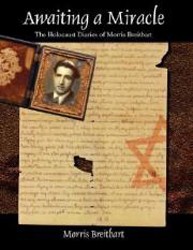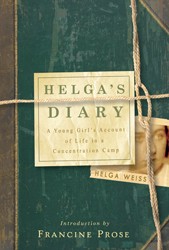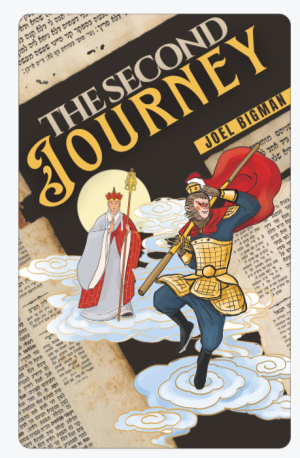Shanghai is 7,000 miles from Europe, but for some 20,000Jewish refugees from the Holocaust, it served as a haven. Slowly,survivors of this unique sanctuary have published their experiences, butnow we can also hear the authentic voice of the children, and even reada day-to-day diary of a teenager in Shanghai.
Sigmund Tobias, author of the memoir Strange Haven,remembers his childhood days in Germany where he was cursed, spit upon,and pelted with garbage and rocks. He remembers Kristallnacht and thetrauma of seeing the charred and burned handles of the sacred Torahscroll. His father, tall, strong, and proud, was sent to Dachau andreturned beaten and broken, hair shaved off, and dragging a foot. Afterbeing refused sanctuary everywhere, they fled to Shanghai, where a visawas not required.
Tobias was six. Tobias’ well-written memoir describes theirnew world in China. People ate with chopsticks, and there was one toiletfor seven families in their shelter. He describes his schooling at theKadoorie School and the Mir Yeshiva, and how his faith was shaken by theyeshiva’s greed and self-interest. During the war, the yeshiva studentscould afford to purchase cigarettes and new clothing, and were servedexpensive food such as butter and cream, while many refugees werestarving and wore clothes made of flour sacks. When funding from theU.S. was cut off to the refugees, the yeshiva received private funding,but did not share with others in need.
Tobias celebrated his bar mitzvah in Shanghai, just afterthe war, in the presence of a U.S. Army Jewish chaplain with the Star ofDavid on his collar, speaking slowly in English and ending with “Am Yisrael Chai,” which brought tears to the rabbi and to everyone in attendance.
At fifteen, Tobias came to America alone, without hisparents, and he describes the warm reception of the Joint DistributionCommittee that welcomed and assisted all new immigrants. He eventuallybecame a highly respected university professor who was invited toShanghai to lecture, and the return to his former home in Shanghai is abeautiful ending to this memoir.
Sigmund Tobias was fifteen when he left Shanghai in 1948; Fred Marcus was fifteen when he arrived there in 1939. Marcus’ diary, Survival in Shanghai, covering the ten years he lived there, is an absolute gem.
Written in poor quality wartime ink, on faded pages, it wasnever translated by the author. Fortunately, Marcus’ widow contactedgifted translator Rena Krasno, who lived in Shanghai from 1923, and thetwo women collaborated on this book, adding an illuminating commentarywhich provides a detailed picture of Jewish life in Shanghai as well asan excellent bibliography of the Holocaust refugee experience in China.Each page is a treasure of information as the teenaged Marcus overcomesobstacles of survival, including depression. We learn of the terribleconditions that thousands of refugees endured, with only a sheetseparating families in overcrowded housing, and the heroic and dedicateddoctors who prevented major epidemics. Marcus attended lectures byrefugees on music, Chinese culture, art, history, etc. Despite thedeplorable situation, sixty German plays were produced in Shanghai, andseveral operettas as well. We learn of Die Gelbe Post (The Yellow Post) one of twenty-two Jewish publications in Shanghai.
Fred Marcus left Shanghai in 1949 for the U.S., where hegraduated from university and received a Masters in Jewish Education. Helectured frequently on his experiences growing up in Nazi Germany andas a refugee in Shanghai.
These two books provide rich new insights into a majorchapter of the Jewish Holocaust refugee experience. The fact that bothauthors were so young gives the works particular poignancy.




